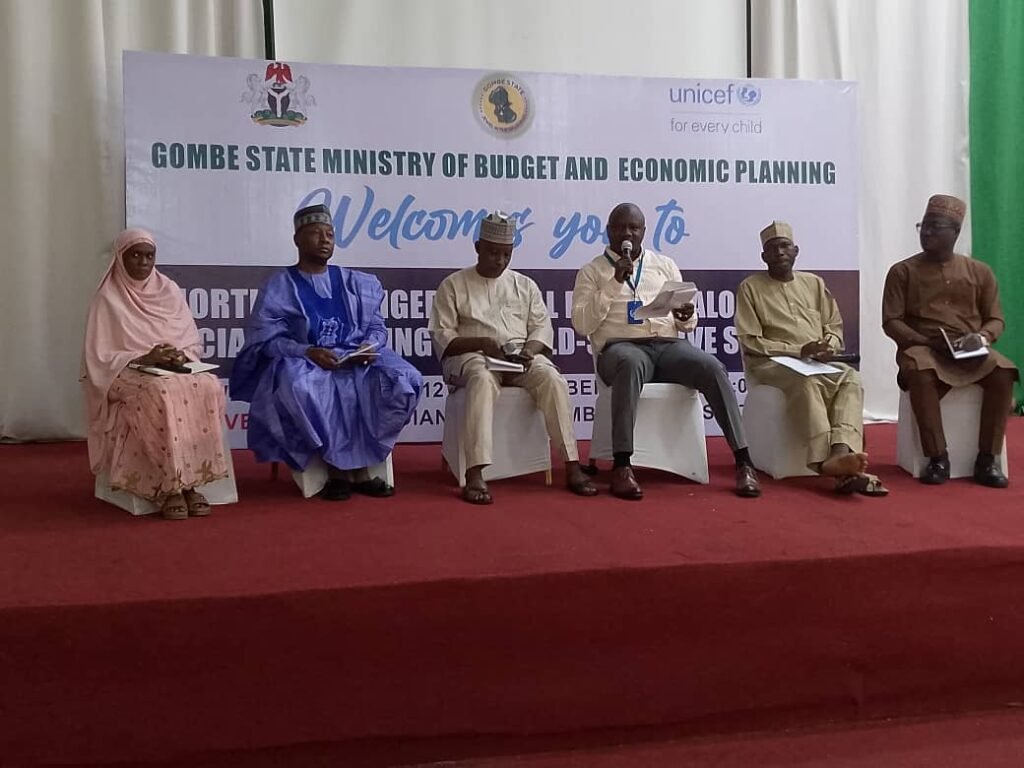From Umar Dankano, Yola
The United Nations Children’s Fund (UNICEF) has urged the Federal and State governments to prioritize and implement budget financing for child-sensitive sectors.
This call was made by Mohammad Kamfut, the Officer in charge of UNICEF’s Bauchi Field Office, during a two-day policy engagement for North-East states, focused on strategic social budgeting for child-sensitive sectors in Nigeria. The event took place in Gombe State.
Kamfut, who was represented by UNICEF Social Policy Specialist, Dr. Yusuf Auta, emphasized that for the past three decades, global efforts have aimed to honor commitments to children by ensuring measures are in place to protect and advance their rights. These rights include access to the necessary resources for survival, development, and growth, as outlined in the Convention on the Rights of the Child.
However, Kamfut lamented that despite global efforts to combat poverty, children are often neglected in poverty reduction strategies. He referenced UNICEF Nigeria’s 2020 Multi-dimensional Child Poverty Analysis, which revealed that over 47 million children, or 47.4% of Nigerian children, live in households with incomes below the national poverty line of ₦137,430 per year (based on the 2019 exchange rate).
In his address at the opening of the policy dialogue, Gombe State Deputy Governor, Jatau Manassah Daniel, stressed the importance of social budgeting for child-sensitive sectors. This, he explained, involves the planning, mobilization, allocation, and monitoring of resources to ensure children—regardless of special needs—are not deprived of their fundamental rights to education, healthcare, social protection, and proper nutrition. He highlighted the need for a balanced diet to prevent stunted growth and diseases linked to malnutrition.
Deputy Governor Daniel commended UNICEF for initiating the dialogue, noting that many concerned individuals, scholars, and international bodies have expressed unease about how children’s needs are often overlooked. He called for an urgent reversal of this trend.
Daniel advocated for adherence to the 50/20/30 budgeting rule, which suggests allocating 50% of income to needs, 20% to savings, and 30% to wants. He pointed out that children cannot create budgets for themselves, putting the responsibility on policymakers and leaders to act in their best interests.
He urged policymakers to ensure that the desired outcomes are achieved through comprehensive planning, political support, and proper implementation of social budgeting for child-sensitive sectors.
“The positive aspect of this dialogue is that it comes as we are preparing our state budgets for 2025. I hope this engagement will produce relevant, responsive, implementable, and adaptable solutions that will stand the test of time and ensure integrity and transparency,” the Deputy Governor stated.
At the end of the two-day policy dialogue, attended by 120 participants from six states in the North-East zone, stakeholders unanimously agreed to increase budget allocations for children’s protection, nutrition, and WASH (Water, Sanitation, and Hygiene).
Policymakers called on governments to address the rising issues of high child mortality rates and the growing number of out-of-school children in the region. The dialogue also urged the creation of directorates or agencies focused on out-of-school children, the scaling-up of foundational literacy and numeracy programs, and the strengthening of multi-sectoral coordination in social service delivery for women and children.
Our correspondent reported that the event was attended by Commissioners of Budget and Planning, Commissioners of Education, Permanent Secretaries, Directors, and other stakeholders.

